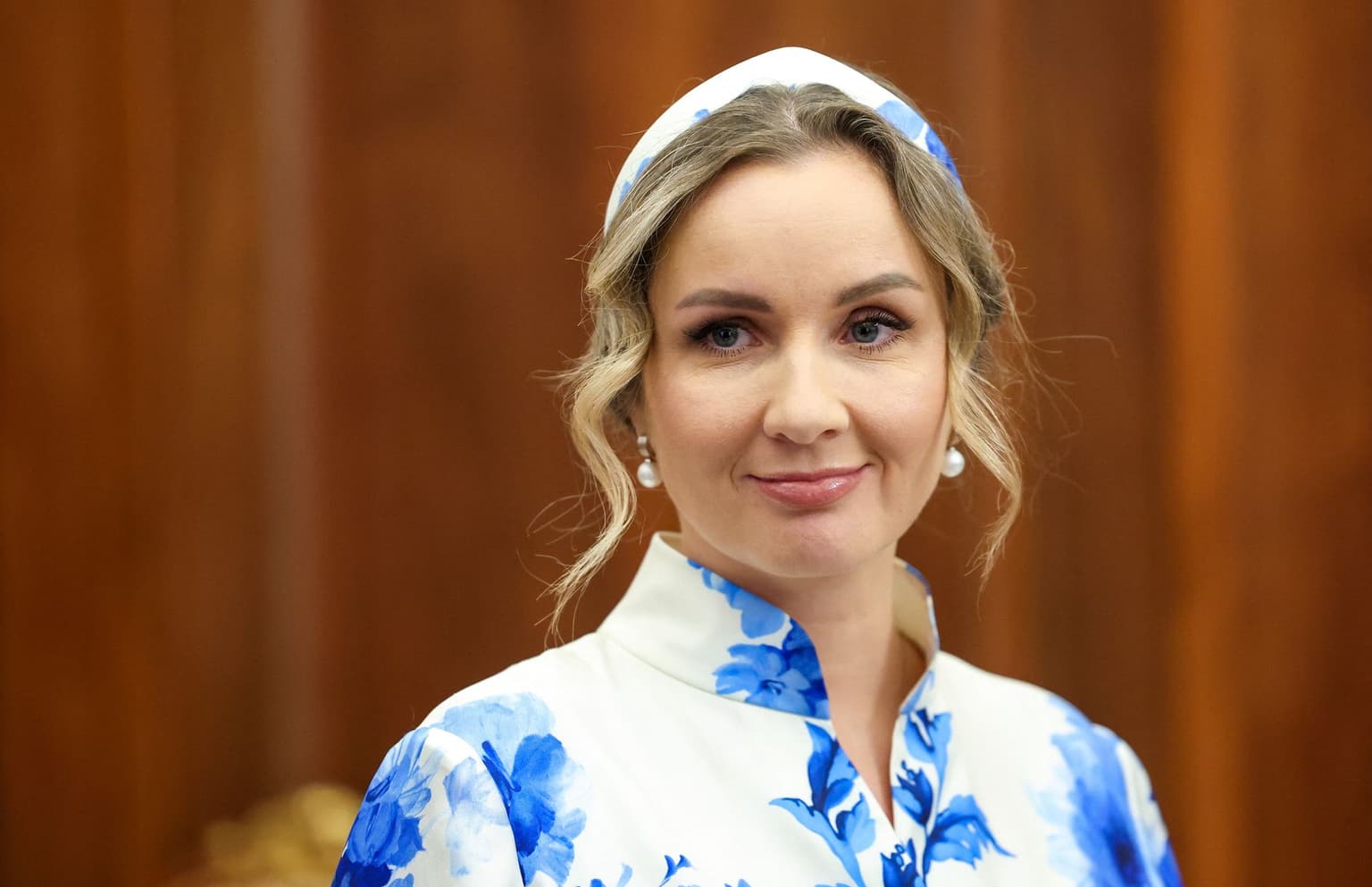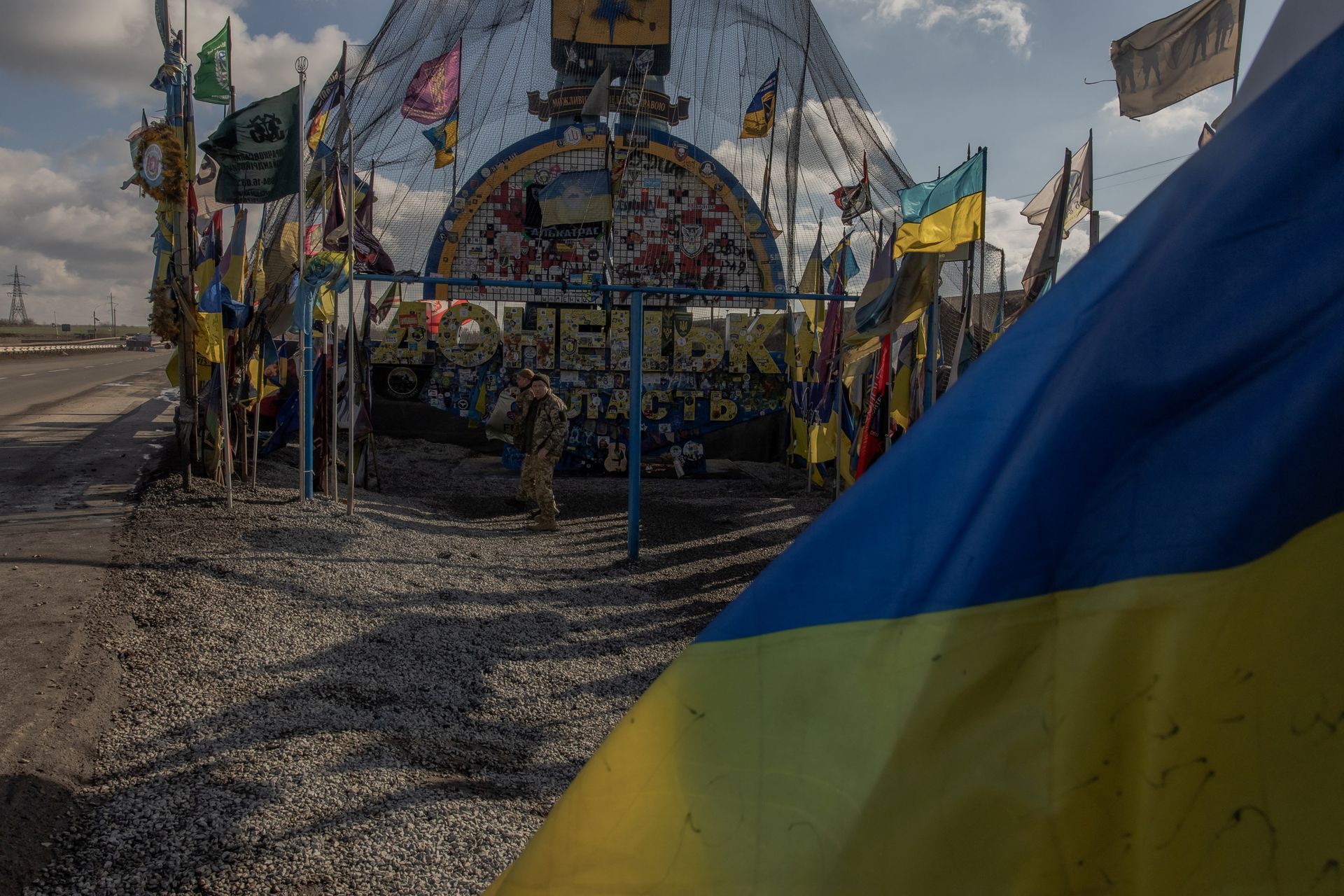Russia’s children’s commissioner shamelessly describes kidnapping a Ukrainian child

Maria Lvova-Belova — Russia’s Commissioner for Children’s Rights, wanted by the International Criminal Court for the abduction of Ukrainian children — has revealed new details about kidnapping a boy from Mariupol whom she later claimed to have adopted.
In a recent interview on the Russian talk show "Smotri i Dumai" ("Look and Think,") Lvova-Belova described how she "took in" a 15-year-old boy named Filip from Mariupol, the city Russia demolished and occupied early in the war.
She said that Filip "did not want to go to Russia" and said that he was "annoyed by Moscow and Russia," but she managed to re-educate him.
In March 2023, the International Criminal Court (ICC) issued arrest warrants for both Lvova-Belova and Russian President Vladimir Putin, accusing them of the unlawful deportation and transfer of children from occupied areas of Ukraine to Russia. The Kremlin has rejected the accusations as politically motivated.
By telling the story of kidnapping Filip, Lvova-Belova effectively confirms the act that made her wanted for war crimes — taking a child from occupied territory and reshaping his identity to fit Russia’s narrative.
Lvova-Belova became the second woman in history to be the subject of an ICC arrest warrant, charged with war crimes related to the forced transfer of civilians during an armed conflict.
'Re-educated' and made to love Russia
Lvova-Belova met Filip in Mariupol, describing it as part of her "humanitarian trips" to occupied Donbas, where she "helped evacuate children."
She said the boy "seriously complicated the family atmosphere," as he arrived suffering from post-traumatic stress and, as she put it, a negative attitude toward Russia.
"He said, ‘I don’t want to live in Russia. I love Ukraine. He sang Ukrainian songs all the time. I told him, ‘Are you trying to provoke me by singing in Ukrainian? We are brotherly peoples,’" she said.
She claimed that Filip’s hostility came from anti-Russian propaganda in Mariupol schools and described how she tried to "re-educate" him.
"There was a turning point. He kept reading pro-Ukrainian websites while already living with my family in Moscow. I told him, ‘Listen, you’re in Russia now, you need to change your attitude.’ He said, ‘I always read them.’ And I said, ‘Son, at least for my sake.’ So we tried little by little."
When the interviewer asked why she had taken him in if he didn’t want to live in Russia, Lvova-Belova said: "It’s just a teenage thing."
The Hague Warrant
When the interviewer asked Lvova-Belova about the International Criminal Court (ICC) in Hague, she dismissed the charges against her as fiction.
"They keep promoting their myth that we forcibly remove children, change their identity, re-educate them in Russian patriotism, or send them to the front," she said.
At the same time, Lvova-Belova admitted that the case involving Filip was one of the reasons for the ICC’s arrest warrant.
"That was one of the reasons. Because I ‘kidnapped’ a Mariupol child and took him into my family — that’s how they see it," she said.
She also claimed that no formal charges had ever been presented to her directly.
"We learned about the warrant from the media. We haven’t seen any official documents. It was all just in the press."
The arrest warrant is publicly available on the ICC’s official website. The court states that Lvova-Belova and Putin are suspected of being responsible for "the unlawful deportation" and transfer of children from occupied areas of Ukraine to the Russian Federation.
The interviewer also asked her how many children Russia had taken. Lvova-Belova replied that the number was around 20,000.
According to Ukraine’s official Children of War database, at least 19,500 Ukrainian children have been confirmed as abducted by Russia since the start of its full-scale invasion , and around 1,200 have been brought home.
The issue of abducted children remains one of Ukraine’s key priorities in peace negotiations, along with a ceasefire and the return of prisoners of war.












